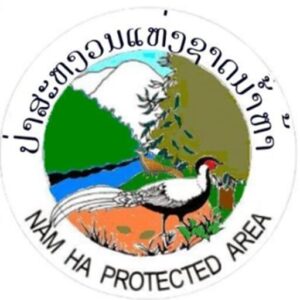Why ecotourism in Luang Namtha ?

The Nam Ha NBCA became a prime target for ecotourism as wildlife hunting in the area has increased to an unsustainable rate. Villagers hunt rare animal species to sell in the marketplace to generate needed income for their communities. Sometimes they take the animals down to the market in Luang Namtha, but often outsiders travel to the villages specifically looking for certain species. In addition, the NBCA has been experiencing large mammal wildlife declines. “[T]he majority of large-bodied mammals and birds, and all reptiles, were more frequently reported as decreasing in abundance” (Johnson et al. 2003, 5).
An ecotourism strategy seemed appropriate as it has the potential to bring in additional revenue into the community and educate the residents as to the environmental effects of their commercial activities. Also, with increasing development pressures on the area, an ecotourism strategy also provides an opportunity to preserve the rich cultures of the Akha, Hmong, Khamu, and Lanten ethnic groups who are facing pressure by the Lao government to move their villages closer to the city of Luang Namtha or to an established roadway for better access to services.
Protected Heritage Values in Luang Namtha

Responsible Tourism and Wildlife Protection Hotline: Please travel responsibly: do not buy or consume wildlife product, do not take and plants out of the Protected Area and carry all garbage out of the Protected Area.
To protect the cultural and natural heritage values that underpin Luang Namtha’s ecotourism-focused tourism industry, the Provincial Information, Culture and Tourism Department works actively with tour operators and communities to ensure that tourism’s negative effects on local culture and the environment are minimized. One way this is accomplished is by maintaining an open line of communication between the tourism office, tour operators, guides and communities during regular meetings and systematic monitoring efforts, and most importantly, taking action to address any problems that arise.
The Provincial Governors Office has issued a set of orders on the operation of ecotourism activities in the province that include specific articles about tour group size, the use of trained guides, prohibitions on the sale of antiquities and wildlife, forest protection along specified ecotourism circuits and the collection of taxes and permit revenues. These orders, backed by national Laws and Decrees discussed in the previous section are the primary legal tools that the Tourism, Forestry, and Information and Culture Department use to support heritage management actions in the province












 Users Today : 45
Users Today : 45 Users Yesterday : 141
Users Yesterday : 141 This Month : 726
This Month : 726 This Year : 16734
This Year : 16734 Total Users : 92696
Total Users : 92696 Views Today : 79
Views Today : 79 Who's Online : 3
Who's Online : 3